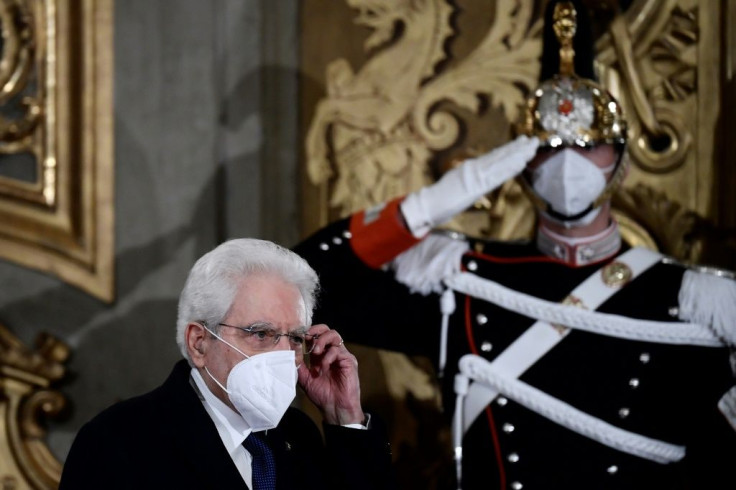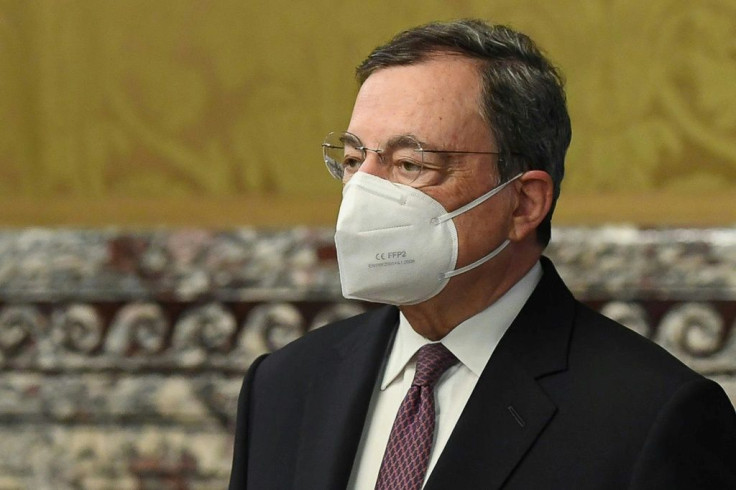Former European Bank Chief Draghi Set To Lead Crisis-hit Italy
Italy's president is expected Wednesday to ask former head of the European Central Bank Mario Draghi to take over as prime minister following the collapse of the coalition government in the coronavirus-ravaged country.
President Sergio Mattarella turned to the ex-central banker after Italy's ruling parties were unable to form a new government in the wake of a split last month that saw prime minister Giuseppe Conte resign.
Draghi, an Italian economist credited with saving the eurozone at the height of the debt crisis in 2012, would take over at a crucial time, with his country still battling a raging pandemic.
More than 89,000 people have died so far, the economy is in a deep recession and the government must come up with a credible plan within weeks to spend more than 200 billion euros ($240 billion) in European Union recovery funds.
Conte's centre-left coalition had been in power since September 2019 but was fatally weakened last month when former premier Matteo Renzi withdrew his Italia Viva party in a row over the handling of the Covid-19 pandemic.

Conte finally resigned last week but hoped to return with a new government comprising the populist Five Star Movement (M5S) and the centre-left Democratic Party (DP).
Mattarella gave them until Tuesday to patch things up with Renzi, but the deadline came and went -- leaving the president with what he said were only two viable options.
He ruled out snap elections because of the pandemic, and instead said he would help form a "high-profile government that should not identify itself with any political formula".
Mattarella has stressed the urgency of creating a stable government to manage the pandemic, which hit Italy first among European nations and has been devastating.
Alongside the ever-mounting death toll, the economy shrank 8.9 percent in 2020 -- the biggest contraction since the end of World War II.
More than 420,000 jobs were lost between February and the end of the year, including 101,000 jobs in December alone, according to national statistics agency Istat.
Conte had drawn up a 220-billion-euro ($240 billion) recovery plan using the EU funds, but Renzi accused him of using it for vote-winning handouts, rather than addressing long-term structural issues.

The lack of political leadership in recent weeks had sparked concerns about whether Rome could meet the April deadline to submit its spending plans to Brussels.
But Draghi, dubbed "Super Mario", has long been cited by political watchers as the man to see Italy through the coming months.
"Thank you president!" tweeted the EU's economy commissioner, former Italian prime minister Paolo Gentiloni, after Mattarella announced his plans.
Lorenzo Castellani, a political expert at Rome's Luiss University, said he believed a Draghi-led government would be highly technocratic.
"The government programme will be 99 percent occupied by the pandemic and the recovery fund," he told AFP, adding that it would likely find support among lawmakers.
After Conte resigned, Mattarella spoke with all Italy's political leaders, before tasking the speaker of the lower house of parliament, Roberto Fico, to mediate only between the ruling parties.
Fico told journalists on Tuesday evening that he had found no "unanimous willingness" to form a stable majority in parliament.
The breakdown in talks prompted a round of finger-pointing from the main parties, particularly against Renzi for "irresponsibly" triggering the government's collapse.
However, Renzi maintains he was only ever concerned about the issues, accusing Conte of mishandling the pandemic.
Conte was first appointed in 2018 at the helm of a government comprising M5S and Matteo Salvini's far-right League.
But when Salvini quit the following year, he created a new coalition with M5S, the PD and Renzi.
The right-wing opposition coalition, which includes Silvio Berlusconi's Forza Italia and the League, has called for fresh elections -- which opinion polls suggest they would win.
© Copyright AFP {{Year}}. All rights reserved.





















